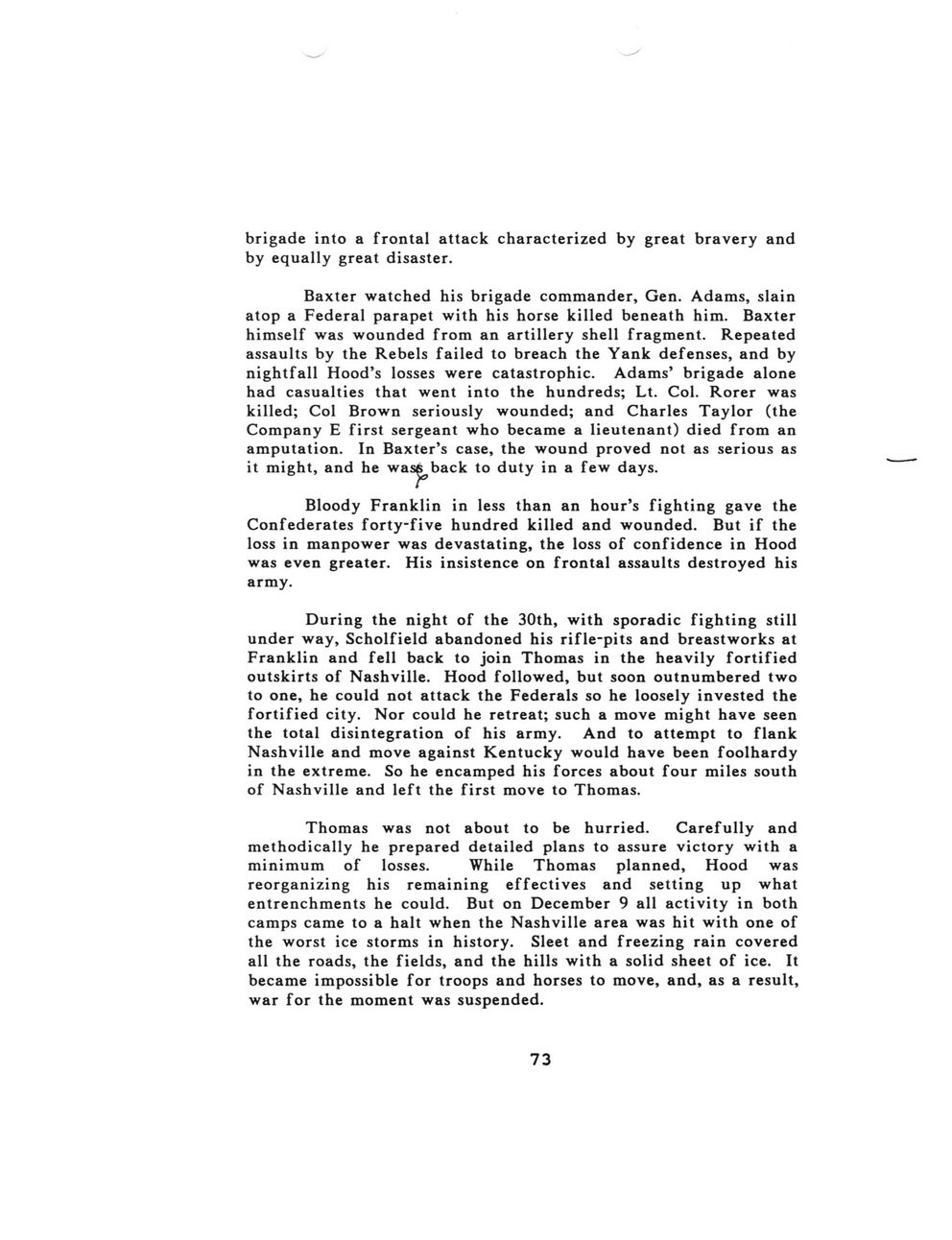This text was obtained via automated optical character recognition.
It has not been edited and may therefore contain several errors.
brigade into a frontal attack characterized by great bravery and by equally great disaster. Baxter watched his brigade commander, Gen. Adams, slain atop a Federal parapet with his horse killed beneath him. Baxter himself was wounded from an artillery shell fragment. Repeated assaults by the Rebels failed to breach the Yank defenses, and by nightfall Hood?s losses were catastrophic. Adams? brigade alone had casualties that went into the hundreds; Lt. Col. Rorer was killed; Col Brown seriously wounded; and Charles Taylor (the Company E first sergeant who became a lieutenant) died from an amputation. In Baxter?s case, the wound proved not as serious as it might, and he was^back to duty in a few days. Bloody Franklin in less than an hour?s fighting gave the Confederates forty-five hundred killed and wounded. But if the loss in manpower was devastating, the loss of confidence in Hood was even greater. His insistence on frontal assaults destroyed his army. During the night of the 30th, with sporadic fighting still under way, Scholfield abandoned his rifle-pits and breastworks at Franklin and fell back to join Thomas in the heavily fortified outskirts of Nashville. Hood followed, but soon outnumbered two to one, he could not attack the Federals so he loosely invested the fortified city. Nor could he retreat; such a move might have seen the total disintegration of his army. And to attempt to flank Nashville and move against Kentucky would have been foolhardy in the extreme. So he encamped his forces about four miles south of Nashville and left the first move to Thomas. Thomas was not about to be hurried. Carefully and methodically he prepared detailed plans to assure victory with a minimum of losses. While Thomas planned, Hood was reorganizing his remaining effectives and setting up what entrenchments he could. But on December 9 all activity in both camps came to a halt when the Nashville area was hit with one of the worst ice storms in history. Sleet and freezing rain covered all the roads, the fields, and the hills with a solid sheet of ice. It became impossible for troops and horses to move, and, as a result, war for the moment was suspended. 73

Baxter, Marion Francis Marion-Francis-Baxter-Bio.-073